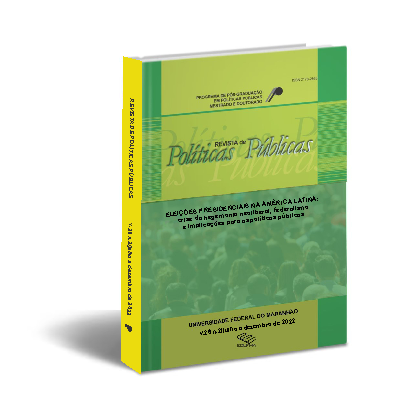O DESENVOLVIMENTO REGIONAL NO BRASIL E NA ARGENTINA
incursões sobre as agendas governamentais
DOI :
https://doi.org/10.18764/2178-2865.v26n2p658-672Mots-clés :
Brasil, Argentina, desenvolvimento regional, federalismo, políticas públicas de desenvolvimentoRésumé
O tema do desenvolvimento regional é parte essencial do debate sobre a participação do Estado na vida pública, bem como sobre a qualidade dos arranjos institucionais pertencentes aos países, com suas capacidades estatais bem definidas. Este trabalho tem a incumbência de analisar o Brasil e a Argentina e as suas estratégias para o tratamento das desigualdades regionais, especialmente a partir dos anos 50 até os anos 90. Como resultados preliminares pode apontar que, no Brasil, as políticas de desenvolvimento regional visam combater a grande desigualdade existente nas regiões Norte, Nordeste e Centro-Oeste, com mecanismos institucionais bem demarcados, especialmente com a presença ativa das superintendências regionais. No caso argentino, observa que a estratégia adotada para conter as desigualdades regionais nas províncias foi uma escolha constitucional, baseada em uma reforma no federalismo, a partir de 1994. Através desta comparação com dois países da América Latina, este trabalho tem a pretensão de colaborar com o mapeamento dos critérios adotados para a resolução dos problemas regionais específicos.
Téléchargements
Téléchargements
Publié-e
Comment citer
Numéro
Rubrique
Licence

Cette œuvre est sous licence Creative Commons Attribution - Pas d'Utilisation Commerciale - Pas de Modification 4.0 International.
UNIVERSIDADE FEDERAL DO MARANHÃO
PROGRAMA DE PÓS-GRADUAÇÃO EM POLÍTICAS PÚBLICAS
REVISTA DE POLÍTICAS PÚBLICAS
Termo de Transferência de Direitos Autorais
Como condição para a submissão, os autores devem declarar a autoria do trabalho e concordar com o Termo de Cessão de Direitos Autorais, marcando a caixa de seleção após a leitura das cláusulas)
- Declaro que participei da elaboração do trabalho referido, em parte ou no todo; que não omiti qualquer ligação ou acordo de financiamento entre os autores e instituições ou empresas que possam ter interesses na publicação desse trabalho;
- Declaro tratar-se de texto original, isento de compilação, em parte ou na íntegra, de minha autoria ou de outro (os) autor (es);
- Declaro que o texto não foi enviado a outra revista (impressa ou eletrônica) e não o será enquanto a possibilidade de sua publicação esteja sendo considerada pela RPP;
- Declaro que transfiro os direitos autorais do trabalho especificado para a RPP, comprometendo-me a não reproduzir o texto, total ou parcialmente, em qualquer meio de divulgação, impresso ou eletrônico, sem prévia autorização dessa Revista.
- Declaro que tenho conhecimento que a cessão do texto à RPP é gratuita e, portanto, não haverá qualquer tipo de remuneração pela sua utilização.

Este obra está licenciado com uma Licença Creative Commons Atribuição-NãoComercial-SemDerivações 4.0 Internacional.







